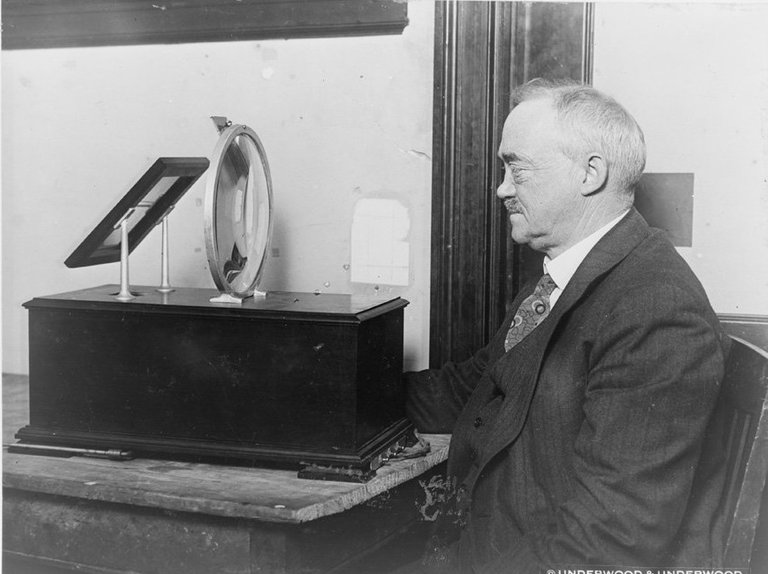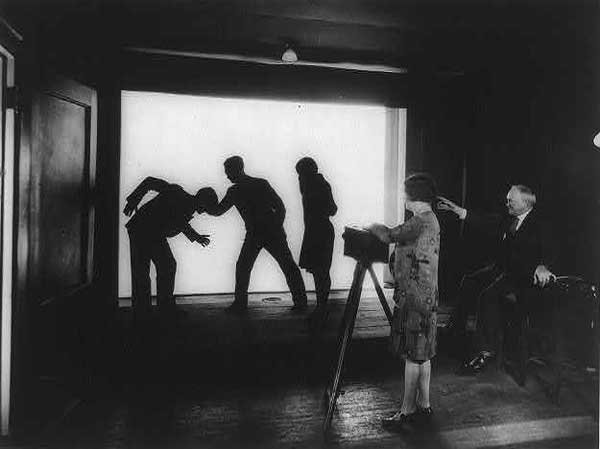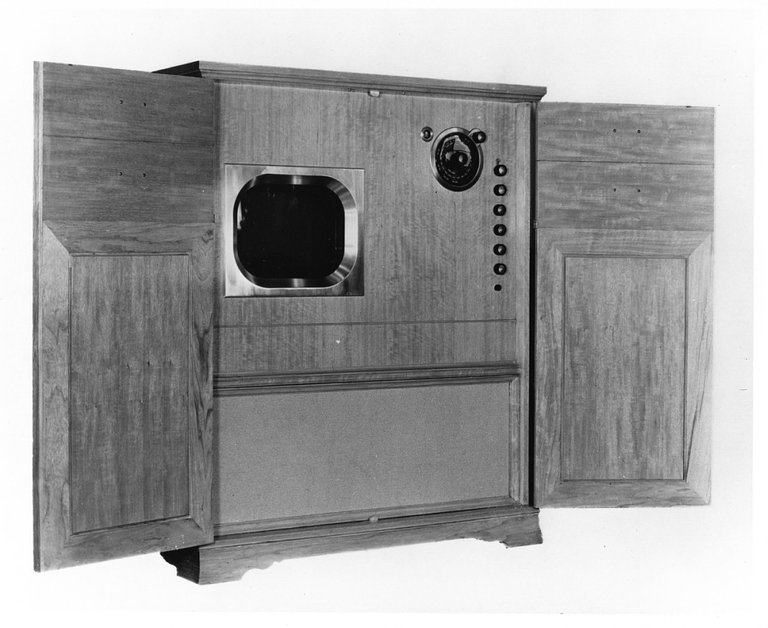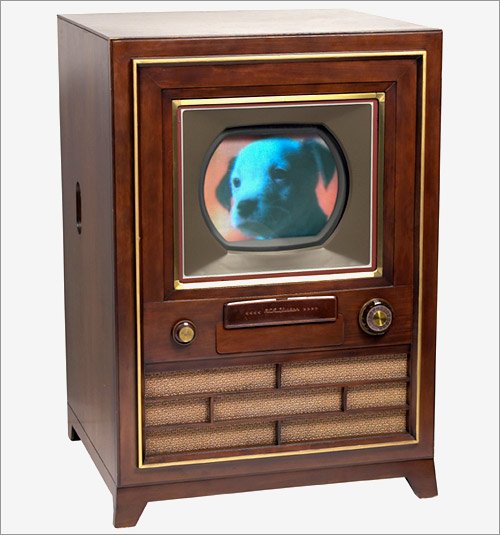Today in History: First television station formed in USA
Who do you think it was? ABC? NBC? BBC? NAACP? Well if you went with any of the major names of today you would be all wrong! As we see broadcast television die a slow death in modern times it is difficult to imagine that there actually was a time when almost no one owned a television because there wasn't any reason to do so since it couldn't do anything without an incoming signal. That was until Charles Francis Jenkins established the Jenkins Television Corporation
The year was 1928

source
sitting too close to the monitor before it was cool
The station was called W3XK and as you might expect, it had a very limited range and and even limiteder audience seeing as how basically no one owned a television yet. The bandwidth capabilities at the time were so poor in fact that the only thing it was capable of transmitting at first was silhouette images and I can only imagine how exciting that must have been for the at home audience of a dozen people or so.

src
Unlike later televisions that were capable of receiving images and sound via radio waves or whatever, the Jenkins system was mechanical and only the electronic impulses were sent over wires where they would be replicated by an internal projection machine that was inside the box such as the one that you see in the first image above.
I can't find enough information to find out for sure, but I don't think that this was ever really conceived as a product that would be widely accessible because it was complicated, involved specific wiring, and of course was really expensive. Obviously, they rapidly changed how television signals were broadcast and it was actually Charles Jenkins himself that would monetize the broadcast by later becoming the first person to broadcast a commercial for the first time in 1930.
The also attempted to manufacture units that were more practical in households such as this gem

source
It was named the Jenkins model 101 "Radiovisor" and not many of them were made. At least one of the is in the possession of the American History Museum and it is not currently on display. Maybe it is being stored in one of those stockpiles like where they keep the Ark of the Covenant from Indiana Jones.
Jenkins and his associates must not have seen much future potential in this product because they liquidated the company in 1932 and the purchaser of all the gear went bankrupt not too long after. There is a silver lining at the side of this apparent cloud though because this late bankruptcy lead the RCA becoming interested in picking up where Jenkins left off. RCA used this technology and dramatically altered it in order to make it more usable, affordable, and accessible to the public. It wouldn't be until the 40's that television had any sort of widespread availability though as it is estimated that by 1936 there were only 200 privately owned televisions worldwide.
Color television wouldn't be widely used until the late 60's.

source
Weighed as much as a forklift and lasted forever... they probably still work today
Today, we are seeing broadcast television in the way that we remember it being when we were young - well, if you are my age anyway, being phased out as on-demand definitely dominates the industry and I don't even know anyone that uses regular broadcast television stations for anything other than sporting events. I live in Vietnam though, so what do I know?
The first television broadcast station likely would have been done by someone else at some point anyway but someone had to get there first, and that someone was a Scotland-born man named Charles Jenkins. And it all started today, a mere 93 years ago.
Thanks for the bit of history. I don't think I'll ever really be able to fully appreciate how far we've come in the space of 100 years seeing as I was born in the 90s. Still, we really have come a long way
The 90's was an interesting time as we were seeing the death of CRT screens and moving to plasma and LCD. I remember having a 23 or 24 inch monitor in my college apartment and it weighed so much that there wasn't a stand that I could find that would support its weight. It was at least 24 inches in depth as well and cost $700
The best invention without a doubt was television, it is a medium in which you receive information that is most of the time they try to influence the subconscious, and many times they succeed
That's actually really interesting. I remember when I was little sitting around one of those giant wooden TVs with a tiny round screen in the middle. Well, my grandmother had one at her house and refused to replace it. She would watch Star Trek on it which I got really sucked in to. In hindsight, I don't know how I sat through an entire program watching that tiny screen, but we did all the time... like 6 of us together.
It's the equivalent of everyone sitting on the couch and watching a movie on an iphone across the room!
while I can't say I ever enjoyed that particular experience we all had gigantic decorative furniture televisions that weighed as much as a small car and had polished wooden exteriors. Basically, when you decided where the TV was going to go, that is where it stayed until you moved. Then you would need 4 people of great strength to get it into a truck.
We had one of those at home as well! I think it had a lid with a record player in the top as well.
Television was actually developing quite rapidly. BBC started with regular television program in 1936, and in the same year Berlin Olympics was the first one to be aired on television. By 1939 most major countries (UK, France, Germany, USSR) had their television stations. Development was halted by Second World War with most of these stations ceasing broadcasts (because it was thought that enemy bombers would use television signals for guidance).
That's an interesting add-on to what I have put. I figured that broadcasts would be stopped during WW2 but I didn't know it was for that reason.
Nice one. History is meant to refresh one's memory of what happen in the past. By remembering today we will also be giving praise to those that support the mission and vision to accomplish the task, indeed they are legends and heroes
From Jenkins model 101 to 8K Ultra HD, a long way.
Jenkins called the model "Radiovisor" but he called the process itself "radiovision". There were newspaper articles at the time that referred to transmitting images as "television" such as:
"Television? The word is half Greek, half Latin. No good can come of it." - C. P. Scott Quote Source
That's some good info there. Thanks for that. I love learning about stuff like this... it could come up on a pub quiz night in the future and I'll know the answer thanks to you!